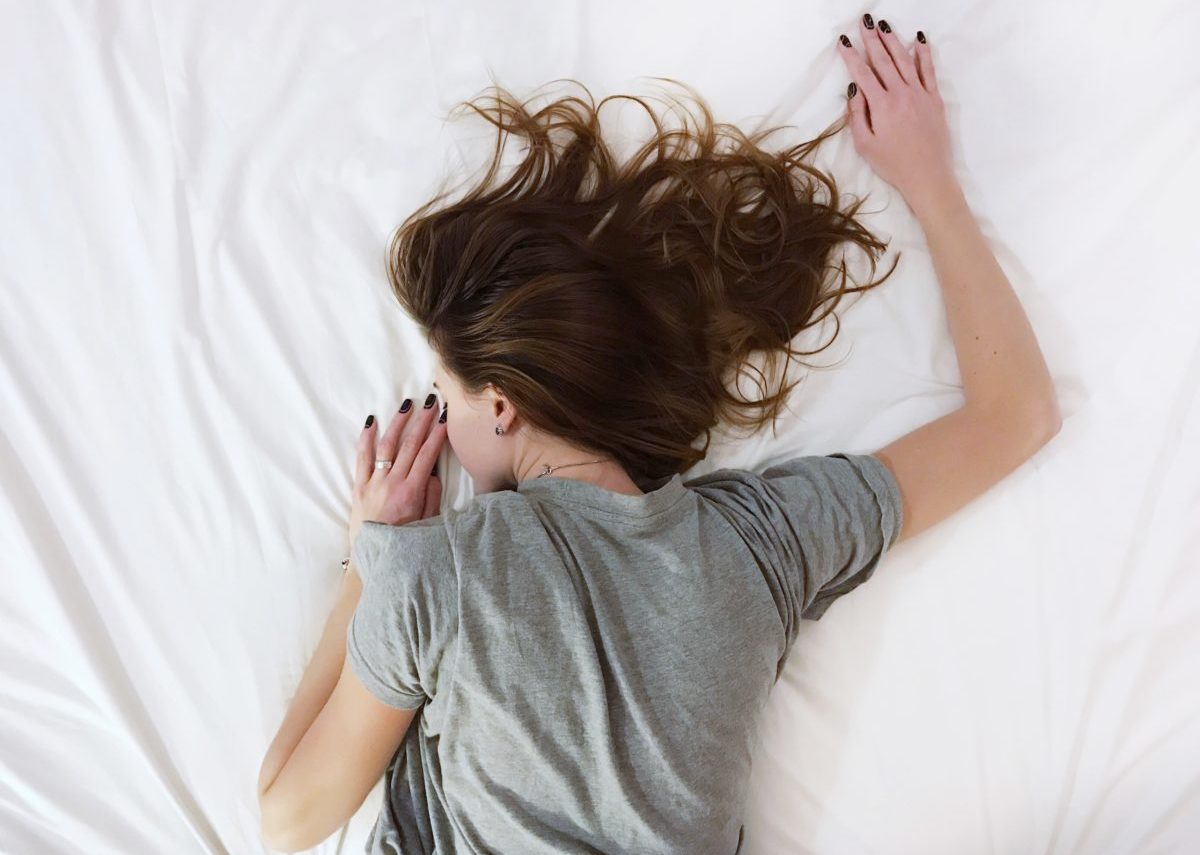A good night’s sleep is just as important for your health as regular exercise and a balanced diet. But we’ve probably all gone through times in our lives when getting 40 winks isn’t as easy as it sounds.
If you’re struggling to nod off or waking up throughout the night, it can be incredibly frustrating. And before you know it, you’re feeling anxious at the idea of not being able to get to sleep – which keeps you up even longer. It’s a vicious cycle.
But there are steps you can take to improve your chances of getting a better night’s sleep. Read on to find out more.
1. Get into a good routine
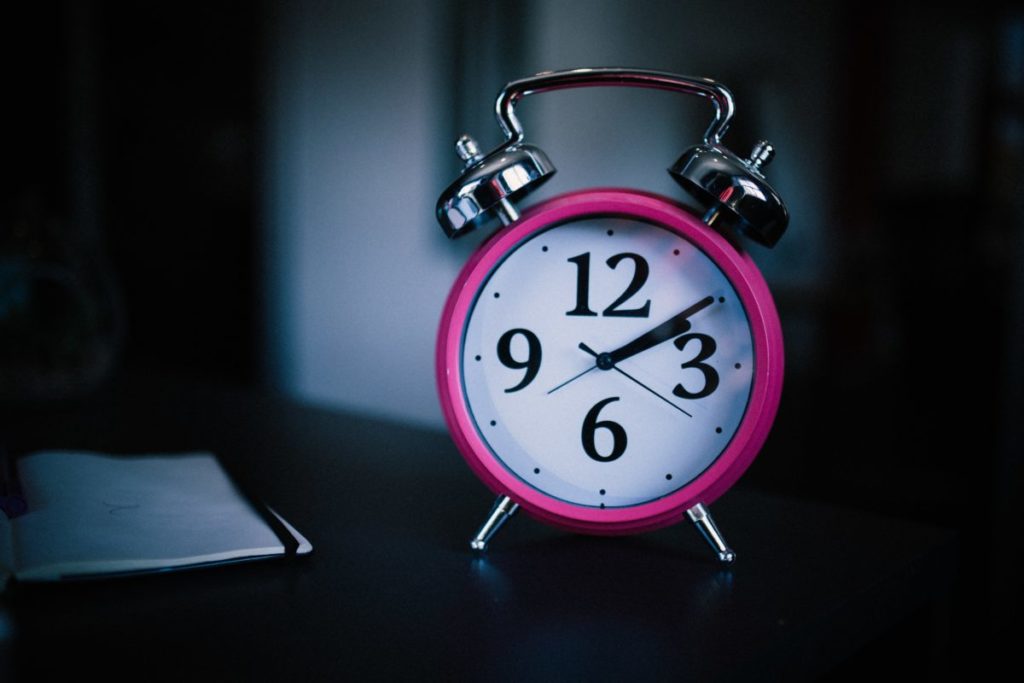 First things first – set aside around 8 hours for sleep. Most people don’t need more than 8 hours to be well rested.
First things first – set aside around 8 hours for sleep. Most people don’t need more than 8 hours to be well rested.
If you can, wake up and go to bed around the same time each day. Sometimes it’s hard to maintain a consistent routine, especially if you have an evening job, but having a regular sleeping pattern is important for good sleep.
And remember, your sleep routine starts before you even get into bed – so build some time in every day to wind down. This could be reading, a warm bath, gentle stretches or meditation to unwind.
2. Go outside

Natural sunlight helps to keep your body clock healthy, so make an effort to get outside during the day. It helps to improve your daytime energy, as well as your night-time sleep quality.
But even if your sleep is ok, light exposure can still help you to feel even better. If getting out isn’t practical, an artificial bright light device can still have an impact.
3. Reduce blue light exposure

Blue light from our tech tricks our bodies into thinking it’s daytime, so try to switch off from your devices in the evening. It’s recommended you stop watching TV two hours before bedtime.
We know switching off from tech is easier said than done – but there are ways to reduce the blue light you’re exposed to without putting your phone down entirely. Download an app that blocks blue light on your smartphone or use the nightshift mode if you have an iPhone. Try an app like f.lux to block blue light on your laptop.
4. Ditch the caffeine
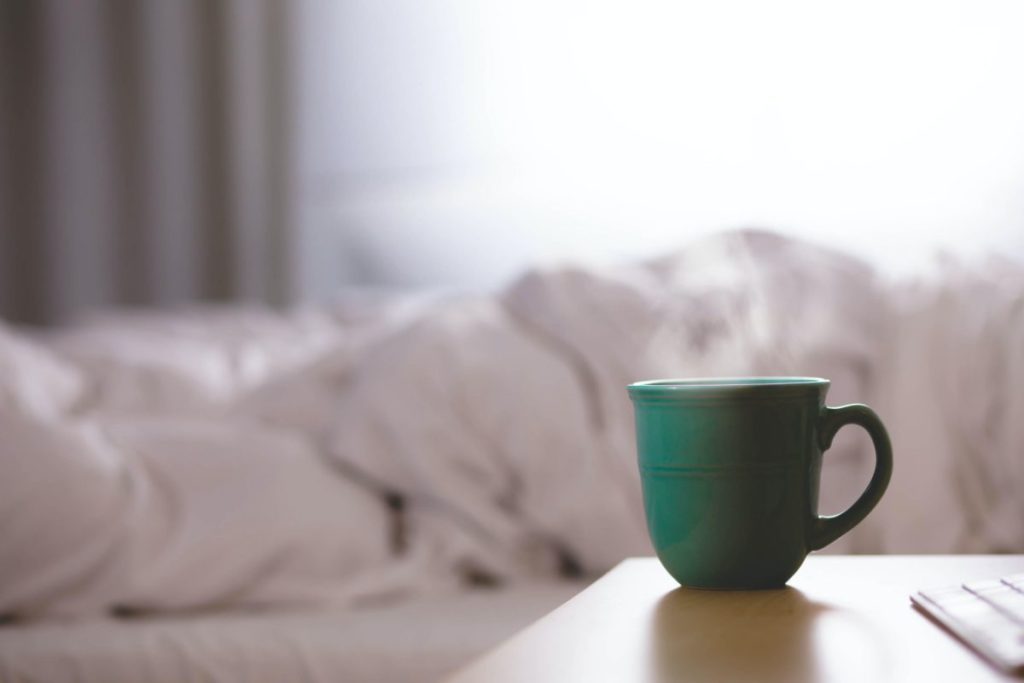
Ok, you don’t have to ditch the caffeine altogether, but it’s recommended you don’t drink it after around 3.00-4.00pm. This is because caffeine can stay elevated in your blood for 6 to 8 hours, making it harder for your body to wind down at night.
If you crave a cup of coffee in the late afternoon or evening, stick with decaffeinated coffee. Or maybe just swap for a mug of low-sugar hot chocolate instead.
5. Cut the naps

Although sometimes powernaps can be effective, taking long or irregular naps during the day can hinder your sleep at night. It can confuse your internal body clock and even make you sleepier during the day.
Some people can get away with a regular daytime nap. But if you are having trouble sleeping at night, try cutting the naps out altogether to see if your sleep improves.
6. Don’t drink alcohol

Even a couple of drinks at night can negatively affect your sleep and hormones. If you’re struggling to get a good night’s sleep, cutting down on alcohol can really help.
Alcohol consumption alters night-time melatonin production, which has a key role in keeping your body clock healthy. Not to mention, it increases the likelihood of snoring and disrupted sleep patterns.
7. Curate your sleep space
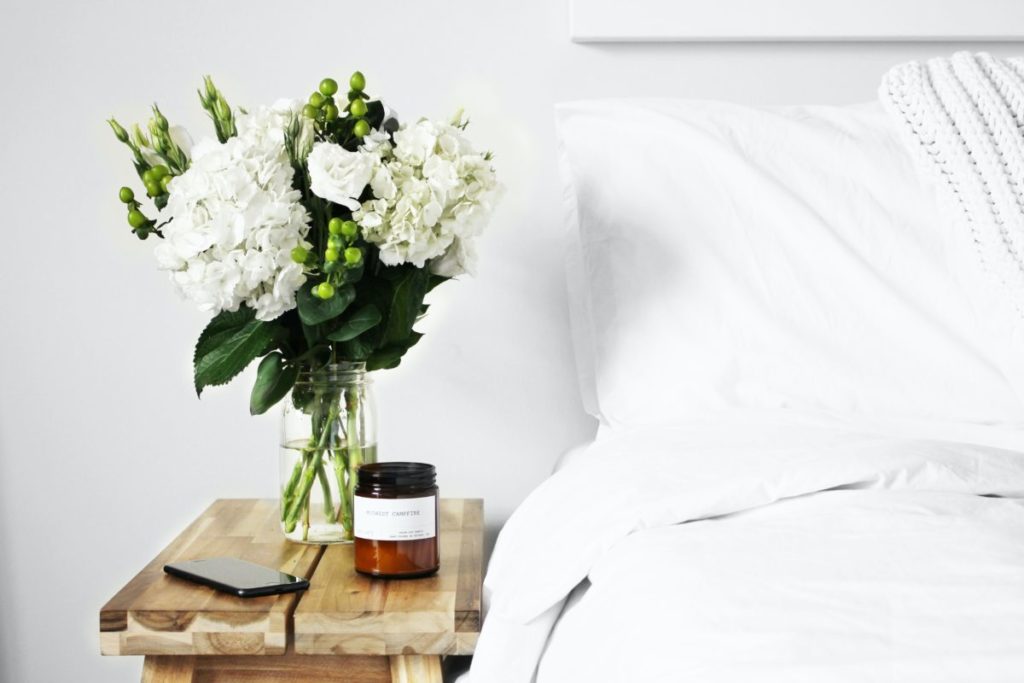 Where we lay our heads has a big part to play on sleep quality. There are lots of factors that affect how we sleep – including temperature, light, external noise and even the aesthetics of your space.
Where we lay our heads has a big part to play on sleep quality. There are lots of factors that affect how we sleep – including temperature, light, external noise and even the aesthetics of your space.
Make your bedroom a place you really want to spend time in to relax and unwind. Keeping your space clean and free from clutter is a good place to start – tidy home, tidy mind!
Sometimes barriers to getting a good night’s sleep can be psychological. Think about revamping your sleep space with new bedsheets, pillows and throws to mentally start afresh.
If you’re living in rented accommodation, you might not be able to paint your room, but if you can, consider using soothing tones of pale green, blue or blush pink to create a calm environment.
Then think about the external factors you can mitigate. Invest in a blackout blind or curtains to block out light at night. If that’s beyond your control or budget, try wearing an eye mask.
8. Exercise regularly
 Exercise is one of the best ways to improve your mental and physical health – and this includes your sleep quality, too.
Exercise is one of the best ways to improve your mental and physical health – and this includes your sleep quality, too.
Research has shown that people who exercise regularly sleep better at night and have more energy during the day. Vigorous exercise has the biggest impact, but even a short walk each day can improve your sleep quality. To feel the benefits, you need to keep it up long-term, so get into an exercise habit that sticks.
9. Pay attention to what you eat
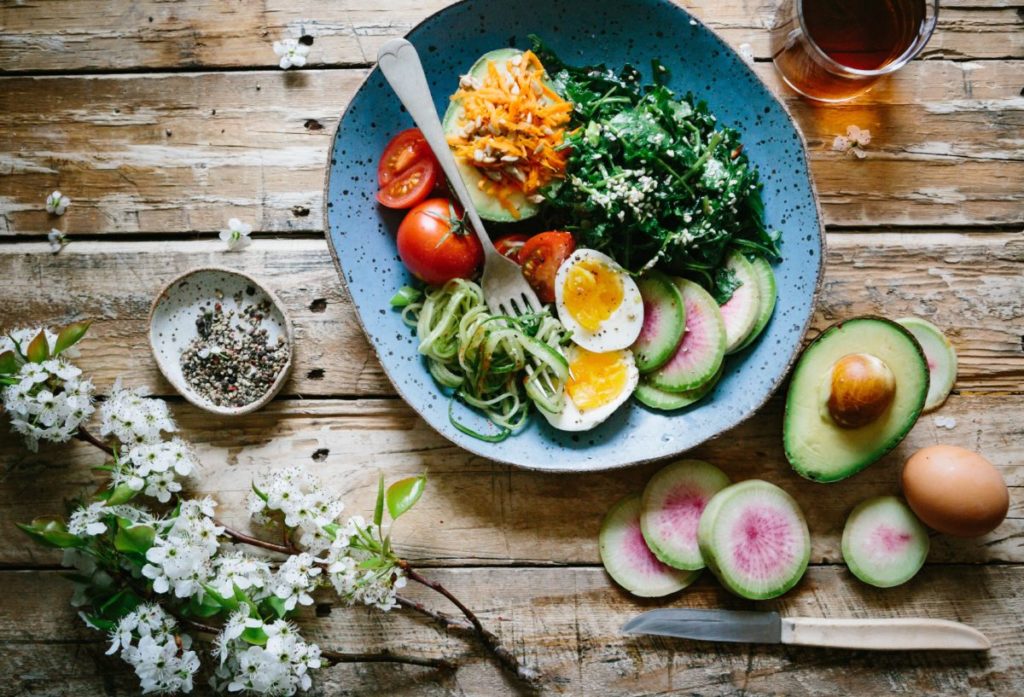 We all know the importance of diet and nutrition on our overall wellbeing. Of course, eating a healthy, balanced diet has lots of benefits – including better sleep.
We all know the importance of diet and nutrition on our overall wellbeing. Of course, eating a healthy, balanced diet has lots of benefits – including better sleep.
Sugary foods and refined carbs can trigger wakefulness at night, so limit your intake of white bread, white rice and pasta during the day. A Mediterranean-style diet rich in vegetables, fruit and healthy fats could help you get a better night’s sleep.
But when you eat is important, too. Try to avoid eating large meals close to bedtime as this can cause indigestion or stomach problems that can keep you awake.
You shouldn’t go to bed hungry though, because this will keep you up at night, too. If you need a small snack before bed, try a small bowl of low-sugar cereal, a banana or yogurt.
10. Keep a notebook by your bed
 If you’re someone who regularly wakes up in the night with worries, thoughts or ideas, keeping a notebook by the side of your bed may help.
If you’re someone who regularly wakes up in the night with worries, thoughts or ideas, keeping a notebook by the side of your bed may help.
For instance, if you wake up feeling anxious about something, make a quick note of it. This will help you to get the problem out of your head and put it to one side, so you can think about it and try to resolve it the next day.
Or if it’s a great idea that’s keeping you up, write it down and fall back to sleep knowing you can come back to it in the morning.
We hope these top sleep tips will help you get a better night’s rest. Everyone is different, so start by making a few small changes to your routine and see what works for you.
Do you have any top tips to share? Tell us in the comments!

